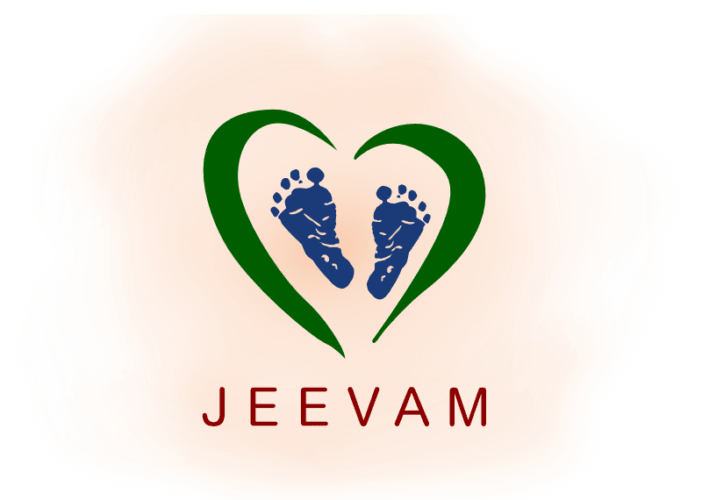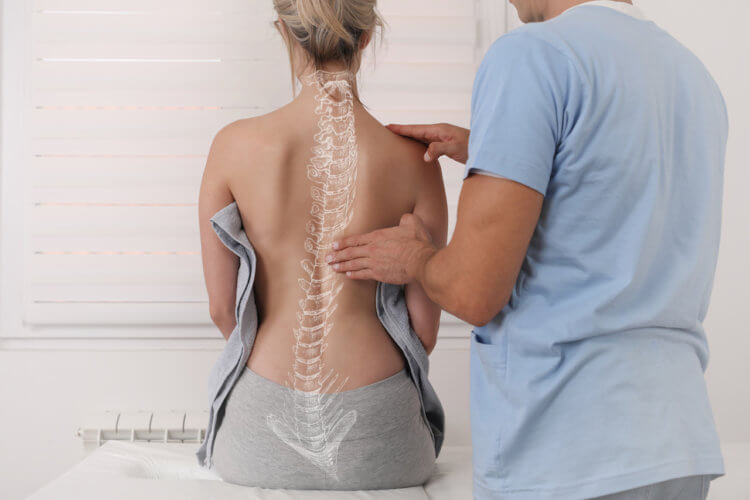It’s National Spine Day! Today’s blog will delve into signs of a herniated disc and discuss how physical therapy can provide relief
From time to time, everyone experiences some form of back pain, which can be caused by anything from sleeping in an awkward position to having a herniated disc. How can you differentiate between a herniated disc and typical back pain? A herniated disc occurs when the inner gel-like part of a spinal disc pushes through a tear in the outer layer, causing pain, numbness, or weakness. One key indicator is the location of the pain. With a herniated disc, pain is often centered in the lumbar spine or lower back. This pain can radiate to the thighs, buttocks, or calves. It can occur during rest and activity; even a cough or sneeze can cause pain by putting pressure on the affected nerves.
Spotting a Herniated Disc
To confirm whether you have a herniated disc, it is essential to consult with a physician. The diagnostic process typically involves a physical examination and possibly an X-ray. Although X-rays do not reveal herniated discs, they can help rule out other potential causes of back pain, such as fractures. An MRI may be recommended for a more detailed view, providing 3-D images of the spinal cord and identifying the presence of a herniated disc and the affected nerves.
Spinal discs are shock absorbers for daily activities like walking, sitting, lifting, and running. Each disc consists of a soft inner core and a tough outer ring. When the outer ring is damaged, the inner core can protrude and cause pain. Common causes include weakened muscles, aging, obesity, or a sedentary lifestyle. Sudden movements can also result in a herniated disc. Even if you turn suddenly, you can also incur a herniated disc.
How Jeevam Therapy Treats a Herniated Disc
At Jeevam Therapy, our experienced physical therapist will guide you through specific exercises designed to ease the pain and strengthen the muscles affected by a herniated disc. Our comprehensive physical therapy programs include ultrasound therapy, manual therapy, deep tissue massage/IASTM, ice and heat treatment, stretching exercises, electrical muscle stimulation, and aerobic exercises.
- Ultrasound Therapy: Uses sound waves to generate deep heat to reduce pain and muscle spasms
- Manual Therapy: The therapist uses their hands to mobilize bones to correct positioning and release muscle and nerve tension to alleviate pain and dysfunction.
- IASTM (instrument-assisted soft tissue mobilization) / Deep Tissue Massage: This technique uses targeted pressure to relieve spasms and muscle tension.
- Heat Therapy: Enhances the flow of blood, nutrients and oxygen to the affected area, promoting healing.
- Cold Therapy: Reduces inflammation and alleviates pain.
- Stretching Exercises: Improve flexibility, reduce muscle tension, and enhance mobility.
- Electrical Muscle Stimulation: Uses electrical impulses to strengthen muscles, reduce pain and spasms, and improve circulation.
Our treatments focus on core stability, flexibility, and muscle strengthening. Strong core muscles are essential for supporting the spine. By learning proper exercising and stretching, flexibility techniques, you can move more easily, while strengthening exercises create a robust support system for your spine, helping to alleviate pain.
In addition to hands-on treatments, our physical therapist will teach you self-care principles and home exercises. This approach not only prevents further injury but also ensures you reap the long-term benefits of physical therapy, making you an active participant in your recovery.
Physical therapy is one of the safest, quickest, and most effective ways to treat herniated discs. This holistic and non-invasive approach often eliminates the need for harmful drugs or surgical intervention. “Herniated discs can be incredibly painful and disrupt your daily life. The good news is that surgery isn’t always necessary. Studies show that 90% of patients recover through non-surgical treatments like physical therapy.” That percentage is a testament to how effective physical therapy is in the treatment of a herniated disc.
Contact our Metuchen and Paramus, NJ offices today and learn about the next steps for you with screening at our clinics for a nominal fee!
Resources
- https://optimustherapy.com/could-your-back-pain-be-caused-by-a-herniated-disc-heres-what-to-look-for/
- https://www.physicaltherapyfirst.com/2018/07/30/herniated-disc-exercises/
- https://physicaltherapycenter.org/discover-if-that-pain-in-your-back-is-a-herniated-disc-today/
- https://www.mayoclinic.org/diseases-conditions/herniated-disk/symptoms-causes/syc-20354095
- https://www.aans.org/patients/conditions-treatments/herniated-disc/
- https://my.clevelandclinic.org/health/diseases/12768-herniated-disk
Tags: back pain, health, physical therapy, pain relief, back pain relief, physical health




